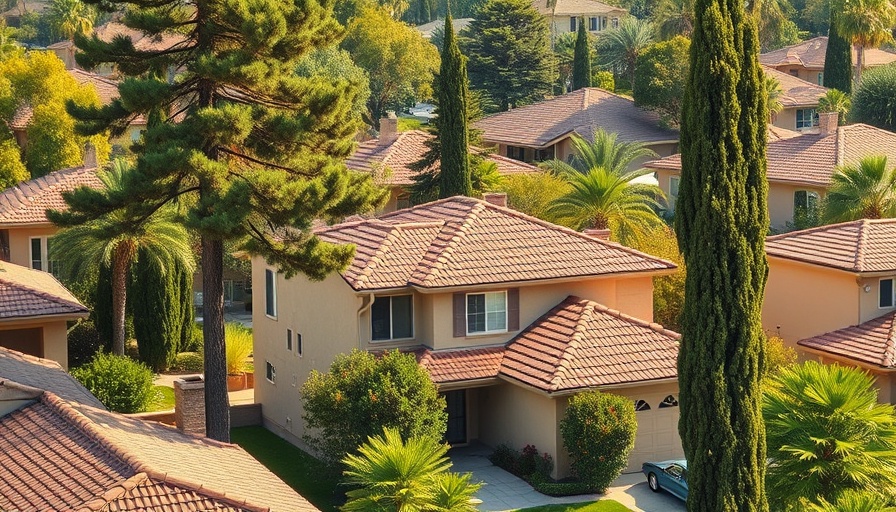
The Age-Old Dilemma: How Old Should Your Next Home Be?
Purchasing a home is not just a financial investment; it's a personal decision that reflects one's taste, lifestyle, and future plans. As you embark on your house-hunting journey, you might find yourself asking, "How old of a house should I buy?" This question can be complex because it involves assessing various factors—including age, condition, and charm—associated with both older and newer homes.
Defining What Makes a House "Old"
Real estate experts typically classify homes built more than 50 years ago as "old." These houses often come with unique character and historical significance, appealing to buyers looking for charm and nostalgia. Yet, they also bring potential challenges, including outdated systems and maintenance issues.
The Allure of Older Homes
Many homebuyers are drawn to older homes for their architectural details, unique styles, and established neighborhoods. These houses often have larger lots, and many have mature trees and landscaping that contribute to a quaint, inviting atmosphere.
However, it's essential to weigh the pros and cons. While you might find a beautiful 1940s home with original woodwork, you may also face hidden costs down the line related to repairs, renovations, or upgrades to outdated systems such as plumbing or electrical. According to a recent article on real estate trends, about 45% of homeowners with older properties report facing unexpected repair costs within a year of purchasing.
The Case for Newer Constructions
On the other hand, a new construction home offers the benefit of modern amenities, energy efficiency, and fewer immediate repair needs. Built with the latest technology and standards, newer homes often come with warranties, saving buyers money on repairs in the early years. Many new developments also include community amenities that appeal to families and young professionals, such as parks, pools, and walking trails.
However, homebuyers should consider the drawbacks of newer homes, such as less character and potentially higher costs per square foot. Also, newer neighborhoods may lack the established community feel that seasoned buyers seek.
Finding The Right Balance
So how do you decide? It ultimately comes down to your lifestyle, budget, and preferences. If you prioritize character and community vibes, you might lean toward an older home. Yet if comfort, amenities, and low maintenance are your focus, a new build might be your ideal match.
It’s also worth mentioning the current real estate market trends; with interest rates fluctuating and housing prices rising, understanding your financial landscape is crucial. Engage with a trusted realtor who can provide insights into mls listings, negotiate for you, or help with real estate appraisal to ensure an informed purchase.
Frequently Asked Questions About Home Age and Purchasing
To guide you further, here are answers to some common questions that arise when considering the age of a house:
- What should I inspect in an older home? Check the foundation, plumbing, electrical systems, and roof condition. Engaging in a thorough home inspection with a real estate agent can reveal valuable information.
- How can I finance an older home? Depending on the condition, traditional mortgage options may be available, but you might require additional financing for renovations.
- What are the energy efficiency considerations for old vs. new homes? New homes are generally more energy-efficient, featuring better insulation and modern heating/cooling systems.
Conclusion: Make An Informed Decision
Ultimately, whether you opt for an old gem or a brand-new abode, conducting thorough research and working closely with an experienced real estate agent is imperative. Evaluate the pros and cons, consider future resale value, and prioritize what is necessary in a home for you and your family.
Ready to find your perfect home? Explore listings on platforms like Zillow, Trulia, and Redfin. Whether you seek charm or modernity, the right home is waiting for you.
 Add Row
Add Row  Add
Add 



Write A Comment